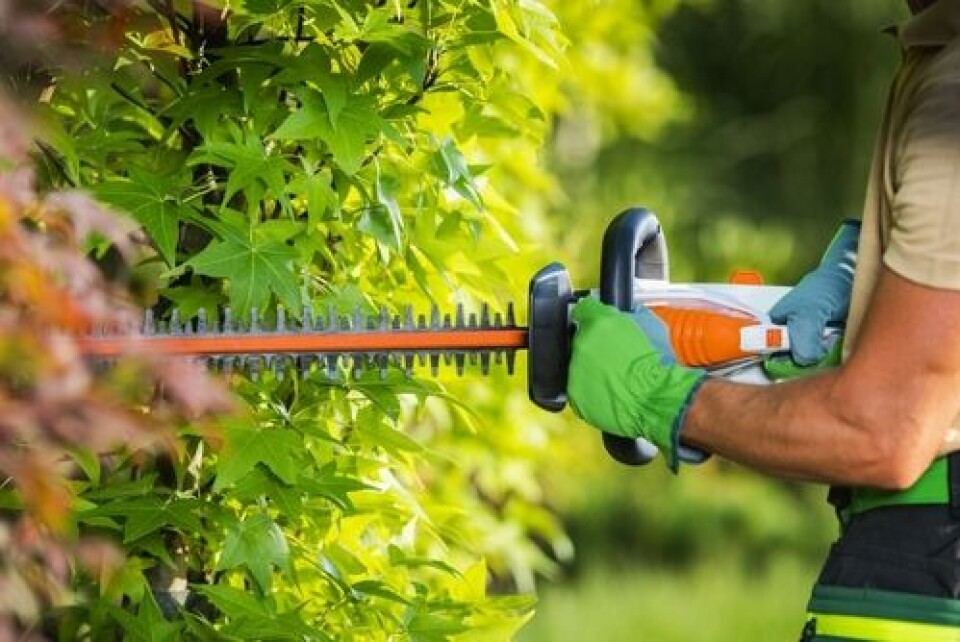-
White storks make strong return in France via nest ‘platforms’ and clipped wings
The Ligue pour la Protection des Oiseaux shares the conservation challenges in saving these birds from extinction
-
Efforts to reintroduce black vultures in France
Plus, wildlife spotter, Jonathan Kemp, shares his experience of searching for bearded vultures around his home in Aude
-
Why microphones are installed in hundreds of trees across France
Researchers have set up devices in more than 100 forests across the country
Plea for French residents not to cut hedges in spring to help wildlife
If you plan to trim your hedges, please do it before mid-March asks the French league for the protection of birds

By mid-March the hedgerows will be full of nesting birds, hedgehogs and other wildlife so an annual plea has been issued by the French office of biodiversity and the league for the protection of birds to do any hedge trimming now.
Whilst a national ban only concerns agricultural professionals and farmers who are not authorised to prune their hedges from April 1 to July 31, private individuals are also asked to do their bit for nature.
“There is nothing illegal about it. It’s just that spring is the time of nesting and the time when nature does its thing so we advise everyone to get their hedge cutting done before mid-March and try to disturb the hedgerows as little as possible,” said an official from the bird protection association the Ligue pour la Protection des Oiseaux.
Whilst you can legally prune hedges throughout the year it is considered helpful not to do so from mid-March until the end of July - the bird nesting period. Hedges fulfil many roles. They provide resources (wood or food), protect from wind, sun and bad weather and even limit soil erosion. They also play host to a panoply of wildlife.
Hedge trimming season: what the law says
One often reads that the ban on hedge trimming applies to private individuals but this is not in fact the case. There is, however, a strict law on what farmers can and cannot do under the code of good agricultural practice (the BCAE - bonnes conditions agricoles et environnementales).
The law specifies that farmers cannot prune their hedges from April 1 to July 31 in order not to disturb the birds nesting during the breeding season, under penalty of a fine and withholding of subsidies.
They risk up to three years in prison and €150,000 in fines if they continue to prune their hedges.
Regulations also exist for the maintenance of hedges between neighbours, notably concerning height, distance and responsibility for pruning - but this is not related to wildlife.
Read also: Join a bird protection group in France and continue historic tradition
Read also: Do we need permission to cut down a tree in our French garden?
A measure to protect breeding bird populations
Most birds nest from March to August. Hedges provide a perfect and comfortable habitat. By not trimming your hedges between March 15 and July 31, you can help to preserve the birds' reproduction. It is an ecological gesture towards the robin, the blackbird and the tree chaffinch.
📢 La haie
— Marilyne Chenuet 🐾 (@MarilyneChenuet) February 25, 2023
- limite les risques d’inondations
- retient l’eau
- protège du vent/du soleil
- fait baisser la température
- accueille une faune précieuse
Voici pourquoi vous pouvez recevoir une amende si vous taillez vos haies en mars :#TouchePasÀMaHaiehttps://t.co/xbPV5zwykr pic.twitter.com/owbyS5zWPq
Your hedges are also home to many insects and small mammals such as the muskrat or hedgehog. Think of leaving small piles of branches at the foot of your hedges, they will like to come and nest there, advises the Office of Biodiversity.
Time to prune
The best time to prune your hedges is between September and February, for two reasons: firstly, not to disturb the rise of the sap and ensure a beautiful spring growth; secondly, not to disturb nesting birds and other small mammals living at the foot of your hedge.
Related articles
Oiseaux de France goes digital to keep tabs on declining species
Birdwatcher’s guide to France: Nature reserves, parks and trails
























